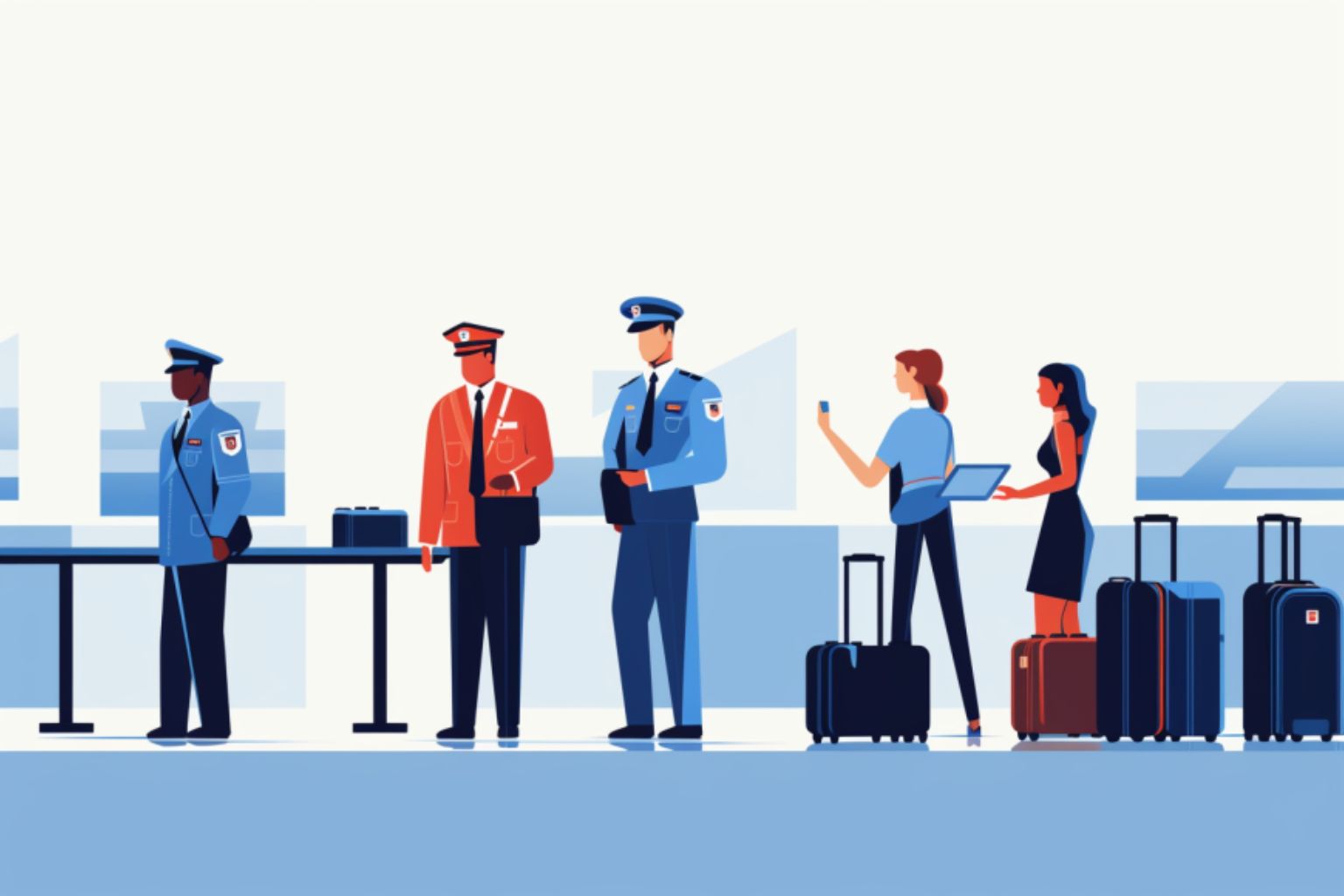A new TSA Transportation Security Administration initiative that lets trusted travelers bypass the airport screening line is on the verge of an ambitious expansion. By the end of the year, PreCheck, a government program that offers expedited screening to those who submit to an initial background check, is expected to be available in 35 airports.
Although many air travelers are fixated on how to score a coveted clearance, which would give them access to an express lane where they don’t have to remove their shoes or liquids or unpack their laptops, some are already starting to worry about retaining their PreCheck status. It might be harder than you think, and the implications for the future of travel are troubling.
Ximena Gonzalez knows. Last month, she contacted me about the mysterious loss of her Sentri status. Sentri is similar to PreCheck; it allows preapproved, low-risk travelers to use special express lanes at the U.S.-Mexican border. In fact, it’s so similar to PreCheck that U.S. citizens who participate in this 17-year-old program operated by U.S. Customs and Border Protection are automatically eligible for PreCheck.
She had to surrender her Sentri cards
Gonzalez, a Mexican citizen who lives in Tijuana, used Sentri regularly whenever she traveled to the United States. Then in February, a customs agent informed her that she and her entire family would have to surrender their cards, but he wouldn’t explain why.
A subsequent revocation letter from the government listed general reasons for stripping users of their Sentri benefits: for being convicted of a criminal offense or having pending criminal charges; for lying on the Sentri application; for violating customs or immigration laws. But none seemed to apply to her. “I don’t have any kind of criminal record and never have broken any law,” she told me. “I don’t even have any traffic fines.”
She should appeal her revocation to the agency’s ombudsman; the CBP denied her appeal, again without citing a specific reason. I contacted the CBP on her behalf, and it gave her a phone number to call. That proved to be yet another dead end, so I contacted the agency again.
TSA said she is guilty by association
Finally, we were able to arrange a meeting between Gonzalez and an agency representative. The agent explained that her record is clean but that “someone I know has gotten into trouble or is under investigation and that it affects me,” she said.
Gonzalez can’t figure out who is in trouble, and the CBP won’t offer more details. She is, for lack of a better term, guilty by association. “I feel like I’m exactly where it all started,” she added. “I don’t know what’s happening and can’t defend myself, because I don’t know who it is.”
She is no longer eligible for TSA PreCheck
The CBP representative also suggested that her revocation is permanent, meaning that from now on she will have to wait in a two-hour line with other tourists when she wants to cross the border.
What do Gonzalez’s troubles have to do with PreCheck, which launched as a pilot program in October and is in use at 12 airports today? A TSA spokesman confirmed that loss of any other E-ZPass-like government program for travelers, such as Sentri, Global Entry or Nexus, will have similar repercussions for their PreCheck membership. “If your card is revoked by CBP, you’re no longer eligible for PreCheck,” says Greg Soule, a TSA spokesman.
He declined to specify the reasons a traveler could be removed from the PreCheck list but said that the TSA offers a grievance process similar to the one used by people who have been placed on a terrorist watch list. The Travel Redress Inquiry Program, or TRIP, allows airline passengers to correct erroneous information in the Department of Homeland Security’s systems. The appeals process is outlined in a revocation letter, as it was for Gonzalez.
These systems can be bureaucratic mazes
Consider what happened when Mary Ann Hoey inadvertently applied for the wrong program online; she’d meant to sign up for Global Entry but ended up clicking the Nexus button instead. (Global Entry lets you use a fast lane for U.S. Customs; Nexus allows you to expedite crossing the U.S.-Canadian border.)
Hoey, an education management professional in Chicago, phoned Global Entry, where a representative acknowledged that it’s a common problem for users to click on the wrong program on the agency’s Web site. But try as she might, she could not get a refund of her $50 application fee. One agency representative told her to write a letter. Another agreed to cancel her application but said that she couldn’t get her money back. “I felt like I had fallen into the government black hole, never to return,” she says. (Here’s how to handle the TSA when you travel.)
I contacted the CBP on her behalf, and it refunded her $50.
It is difficult to trust the TSA. Thousands of air travelers who belong to PreCheck could suddenly find themselves cardless, with no idea how it happened. Sentri revokes about 2,000 cards a year, a number that has held relatively steady over the past five years.
Revocations such as Gonzalez’s raise other questions. If she’s off the Sentri list, can her family members still fly within the United States? Or will they be flagged at the airport and given an extra screening, or maybe even turned away?
The message is a little confusing — and troubling. Some travelers are more trusted than others. But why? The government doesn’t have to say. Try to get an answer, and you might find yourself in a bureaucratic labyrinth from which there’s no escape. Is the TSA worth saving?
As the TSA moves toward what it calls an “intelligence-driven, risk-based approach to security.” Maybe it’s worth asking how intelligent some of its new systems really are.




